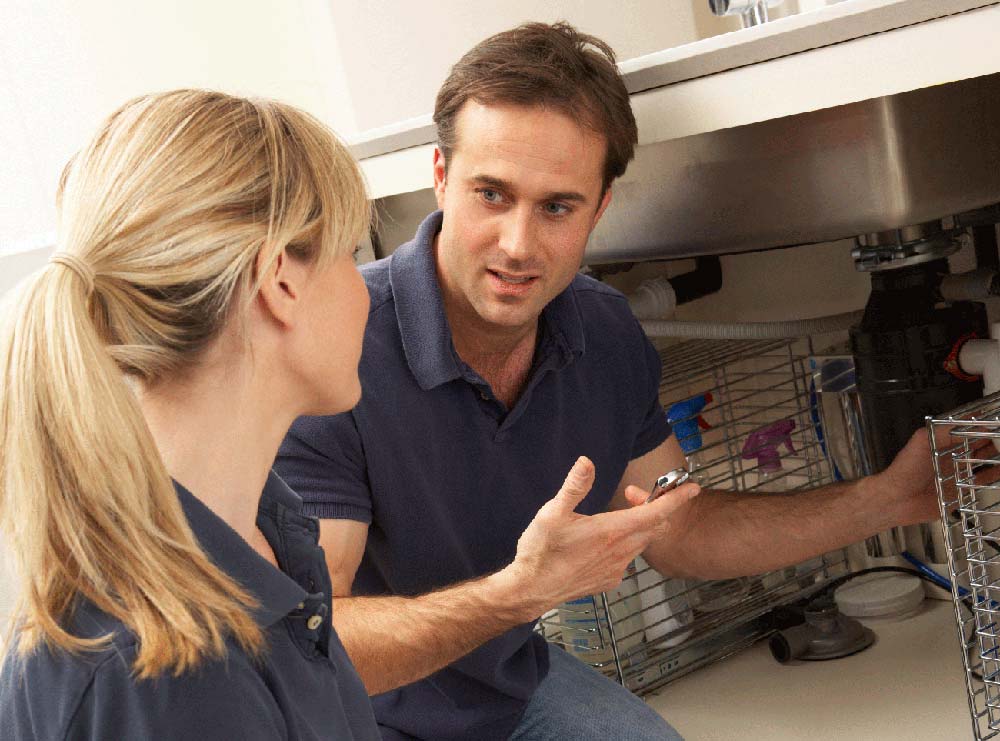
Trades – Plugging The Gap
As the ‘credit crunch’ did its worst to the economy in 2008, trades involved with the construction industry began to shrink. Now, as the economy enjoys recovery, there’s a skills shortage that needs to be plugged.
Given that the credit crunch started in the American housing market it shouldn’t be too much of a surprise that its dramatic shrinkage here in the UK meant that potential new recruits turned away from the sector. What is a surprise is the scale of the problem now faced in construction that sees recruiters having to pay more for skilled workers and having to search further afield for them. The result is that if you have plumbing, electrical, gas fitting or construction skills, you could earn good rewards.
Trade unions have already made their voice heard and used the situation to publicise the dangers of a reduction in the amount of apprenticeships, although this is something of a skewed opinion, given that at the time there was little appetite or point in training people for jobs that didn’t exist. At the current time however, it is reported that some construction companies are having to turn down projects because of a lack of skilled employees.
Projects Ready To Go
This is a serious issue that could slow growth in the economy with the construction industry accounting for around 7% of GDP. Curiously, London has been hit especially hard, not just because of a shortage of skilled workers but because there are so many projects lined up and ready to go. Managing Director, Mark Cahill of recruitment company, Manpower Group UK, said recently that: “one in three of the largest construction companies is having to turn down work on big projects due to a shortage of skilled labour”.
The Construction Industry Training Board (CITB) claim that some 400,000 workers left the industry during the economic downturn and that only 100,000 have returned – with further estimates suggesting that up to 100,000 more could return.
The Union of Construction, Allied Trades and Technology, added that, in 2013, just 7,280 construction apprentices completed their training across all trades, despite estimates from within the sector that the industry needs around 44,000 new entrants to maintain it.
Director of Policy and Strategic Planning at CITB, Steve Radley, said: “Construction is experiencing a major comeback – with a sustained period of growth set to make a positive impact on the wider economy”. There is a feeling that the sector needs to heavily invest in training for the next five years whilst meanwhile Manpower reports that foreign bricklayers have been hired to work for £1,000 a week or double their usual earnings, due to a lack of skilled workers from the UK.
Naturally, all of this is good news for Service-leavers aiming to take up a career based on a specific trade. The skills shortage and glut of vacancies will mean more choice of training providers and good outcomes once qualified.
Furthermore, the qualities that Service-leavers bring to any industry are likely to mean that even as demand begins to level out, employers are still going to want people with solid CV’s and the pedigree of a Military background which will surely put them ahead of other less mature and experienced jobseekers.
Be A Plumber
A good example of a trade that is currently experiencing a skills shortage is plumbing. There are real opportunities to have a solid and well remunerated career – but first you need to qualify.
To become a fully qualified plumber you will need to gain industry recognised qualifications at NVQ level 2 or 3. The standard qualifications to become a domestic plumber are a Diploma, Heating and Plumbing – and Diploma, Installing and Maintaining Domestic Heating Systems.
Level 2 is designed for new entrants into the industry and includes mandatory (learning) units on the basic skills you’ll require including:
- Carrying out and understanding safe working practices in building services engineering.
- Understanding and installing hot water systems and maintenance in the home.
- Understanding and installing above ground drainage systems and maintenance techniques.
- Installing domestic heating systems and maintenance.
(There is also a Level 1 Certificate introduction to Plumbing, which will cover all the basic plumbing knowledge including industry health and safety and will also give you practical skills that will be required for on the job work. This course can lead to Level 2 or Level 3 or be used to take up an apprenticeship or job as a trainee.)
Level 3 represents a step up and is suited to people who have already completed Level 2 or that have prior knowledge and experience of plumbing and are able to work with minimal supervision.
The level 3 Diploma has a range of options including hot and cold water systems, drainage, solar heating, oil and gas fired appliances and also water and recycling systems. ACS safety assessment requirements for the gas plumbing options are also covered. In fact, an ACS assessment is required in order to register with the Gas Safe Register which was formally known as CORGI. Registering will greatly improve your employability.
Most industry recognised organisations prefer to see that new entrants back up their studies with a work placement. There are clear benefits to this from gaining experience to being able to apply the theories and concepts learnt at college to real situations.
Awarding bodies such as City and Guilds, EAL and BPEC can send an NVQ assessor to visit you at your place of work and assess your competence in carrying out tasks. The assessor can award your NVQ or if they aren’t satisfied with your skill level, come back at another time to give you another chance.
Further Qualifications
The Chartered Institute of Plumbing and Heating Engineering (CIPHE) has many membership options which will help you with your development within the plumbing industry. The British Plumbers Employers Council (BPEC) offer training packages, including ACS assessment preparation and also practical business guides.
Once you become a fully qualified plumber you’ll be able to carry out work in the plumbing industry including those concerning: air conditioning, ventilation and heating, gas servicing, refrigeration and bathroom and kitchen fitting amongst others.
According to the National Careers Service your starting salary will be around £18,000 per year for a 40 hour week, although as we have already seen, the marketplace is buoyant and hard work is likely to yield much higher rewards.
More:
Chartered Institute of Plumbing and Heating Engineering (CIPHE) – www.ciphe.org.uk
The British Plumbers Employers Council (BPEC) – www.bpec.org.uk
National Careers Service – nationalcareersservice.direct.gov.uk



